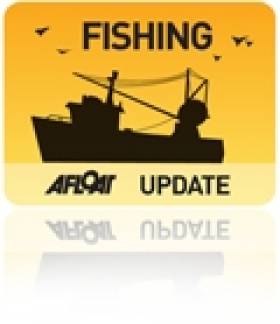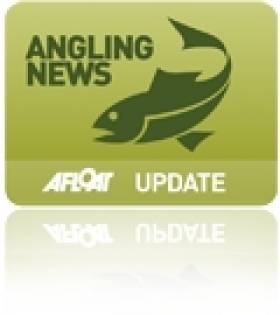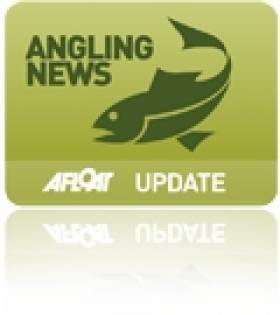Displaying items by tag: poaching
#Fishing - The growing black market for coarse fish in eastern Europe is being blamed for an increase in illegal fishing on Ireland's inland waterways.
That's the situation according to the Sunday Independent, which also highlights the "major problem" of salmon poaching by "Irish criminals".
Last month Afloat.ie reported on the prosecution of two Lithuanian brothers who were fined for illegal coarse angling on Lough Derg.
And the Independent says a number of similar cases are due to be heard before Irish courts over the coming months.
Meanwhile, poaching of salmon is hitting the headlines across the country - from the south, where two men were recently prosecuted for illegal fishing of spawning salmon in Co Limerick, to the north, where intimidation of fisheries staff is reportedly a problem.
In better fisheries news, The Guardian says cod stocks in the North Sea could be in for a revival, after a survey by the Marine Stewardship Council and others suggested that effective management could soon see the species certified as 'sustainable'.
#ANGLING - Inland Fisheries Ireland (IFI) has successfully won a court case against a Co Louth man for illegal salmon fishing.
John Carney from Dunleer was given a four-month prison sentence, fined €400 and ordered to pay costs of over €1,400 to Inland Fisheries Ireland in Drogheda District Court on 24 April after he was found to be illegally fishing in September 2011.
Dundalk district fisheries officers apprehended Carney with fixed nets in the tidal section of the River Glyde. When questioned by officers, the defendant was found to have set five nets, was in possession of illegally caught salmon and refused to give his name and address.
Fisheries officers Thomas Duffy, Seamus Kelledy, Paul O’Reilly and Assistant Inspector Ronan O’Brien were present and court proceedings were initiated. Both sides were represented in court and Carney fought the charges being brought against him.
Judge Hamill convicted Carney under Sections 96, 182 and 301 of the 1959 Fisheries Act, for using a fixed engine which was capable of taking salmon or sea trout, being in possession of illegally caught salmon and for refusing to give his name and address when lawfully demanded.
He was given a four-month prison sentence, fined €400 and ordered to pay total costs of €1,440 to Inland Fisheries Ireland.
Carney had been fined and convicted for previous fisheries offences in the area over the last number of years, the most recent being in 2010 when he was convicted for illegal salmon fishing.
IFI says Dundalk's rivers "remain vulnerable" due to the decline of salmon stocks. In 2006 a series of conservation measures were introduced in order to combat the decline in salmon numbers.
"The interceptory mixed stock fishery for salmon ceased throughout Ireland and netsmen who availed of the Hardship Scheme were duly compensated for their loss of the salmon fishery," said IFI. "At the peak of salmon production in the 1970’s, approximately 3,000 salmon were caught commercially in Dundalk waters annually. This declined to an all time low in 2006 when only 225 were caught in the entire Dundalk bay area. Annagassan would have been a traditional location for poaching salmon and sea trout in the past.
"Consequently all the rivers on the East coast with the exception of the River Fane were closed for salmon fishing. The Dee, Glyde and Castletown rivers are open for catch and release only."
The fisheries body added: "It is hoped that these measures will preserve our stock of Atlantic salmon, which are not only a valuable resource for our economy, but also an important part of our natural heritage as salmon and trout have been running our rivers since the last ice age. Anglers also need to continue to be vigilant to report any illegal fishing incidences to the board."
IFI reiterated its call on the public to report poaching and pollution incidences on its freefone number 1890 34 74 24, or for easier recall 1890 FISH 24.
Poaching a Problem in Cavan and Monaghan Say Anglers
Anglers in Cavan and Monaghan have launched a new organisation to stamp out what they argue is a growing wave of illegal poaching.
Members of the Lake Watch group told The Anglo-Celt at a recent meeting that a number of organised poachers are operating in the two counties.
The poachers are said to be laying out set lines, long lines and nets on dozens of lakes in a single operation, then quickly loading the fish into vans for removal.
Monaghan baliff Brian Byrne accused both Irish and Eastern European anglers of poaching, camping on lake shores and dumping rubbish.
The meeting also heard that a group of Dublin anglers lit a number of coal fires on a lake shore in Carrickmacross in a two-week period.
Lake Watch members have discussed numerous strategies to combat the poaching wave, including nightly patrols, van seizures and even setting up hidden cameras.
The Anglo-Celt has more on the story HERE.


























































